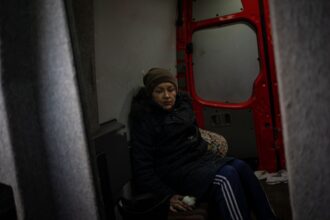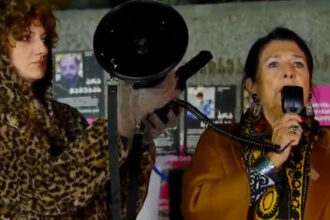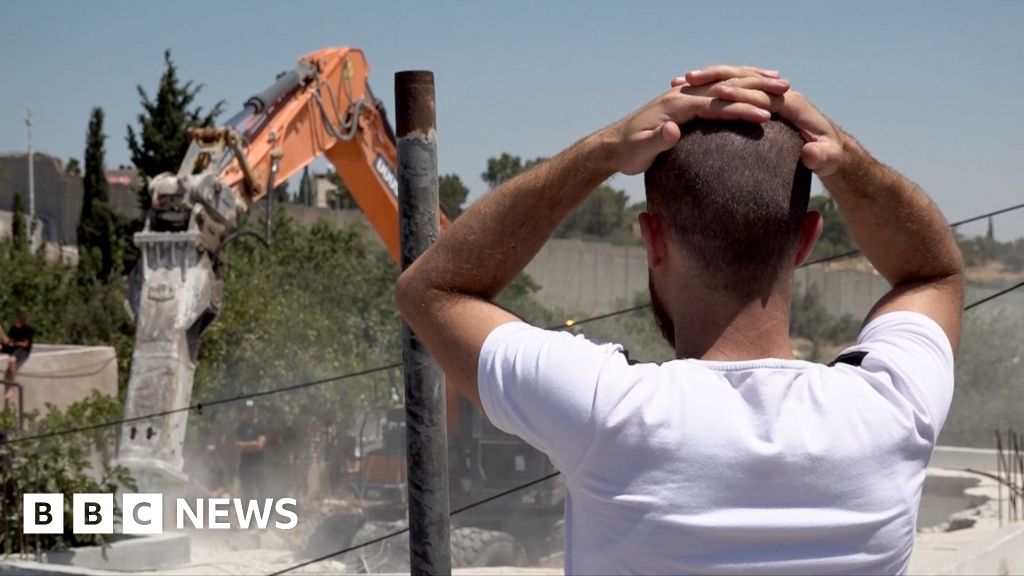Ahmad Musa al-Qumbar, 29, always feared that the Jerusalem authorities would come to him. The married father of four Palestinians built the modest one-storey house seven years ago on land that he owned and where generations of his family had lived.
But Ahmad never had a building permit.
He lives in East Jerusalem’s Jabal Mukaber. It is located in the heart of East Jerusalem, just a few steps from the Old City with its historic religious monuments. It is also one of the most densely-populated and hotly-contested areas of the region. It was captured from Jordan during the 1967 Middle East War and annexed by Israel, but it is widely regarded as Palestinian territory.
The control of Jerusalem is a contentious issue in the long-running conflict. Israel considers all of Jerusalem its capital, while the Palestinians claim East Jerusalem.
This battle is a major part of the “Who” and “Where” debate.
Human rights groups and monitoring organizations claim that the rate of demolitions of Palestinian homes in occupied East Jerusalem almost doubled after the start the conflict in Gaza. The Israeli-run municipal authority, which is responsible for the demolitions, claims that many of the buildings, including Ahmad’s, were built illegally without permission.
Ir Amim is an NGO that claims Israel “forcefully displaces Palestinians from their cities and homes under the cover of war”.
Ahmad tells me, as he stands among the rubble that used to be his former kitchen: “I had no choice but to demolish my home after I was penalized by the Israeli courts and the police.”
“I could not pay the fines because I would risk losing my healthcare and child insurance.” We appealed, but the court refused.
Ahmad, like many others in the same situation resisted the urge to hire heavy machinery and knock down the home himself. He claimed that Jerusalem City authorities would charge him $100,000 (PS75600) if he had carried out the order.
It was painful to see him destroying the future of his children and his family with his own hands.
Israeli authorities reject almost all planning permission applications by Palestinian families living in East Jerusalem. Families in East Jerusalem who are growing say they have no other choice but to build illegitimately, or face the consequences of huge fines and demolition orders.
Some claim that the law and courts are deliberately used to suppress Palestinian ambitions and growth.
“These Palestinian communities ask permission and between 95% and 99% of requests are denied,” Shay Parnes, spokesperson of Israeli human rights organization B’Tselem, says.
Parnes continues, “It’s been happening for years.”
“Sometimes, they use security to justify it. But it’s always done under the same framework as expelling Palestinians… Because the law is different for the different communities that live side-by-side in the same city.”
In recent years, the skyline of the predominantly Jewish Western part of the city has dramatically changed. It used to be a low-rise white-stone building. Construction is booming. As the west side of Jerusalem grows, cranes are working virtually 24/7 to build new high-rise residential and commercial buildings.
In some parts of East Jerusalem, Israel has also accelerated construction to make way for Jewish settlers. In Har Homa about 25,000 people live in brand-new homes on land that Israel formally expropriated in 1991.
Nearby, the Palestinian villages of Umm Tuba & Sur Baher offer public facilities that are inferior to those at Har Homa.
Amnesty International has described the recent demolition of several homes as a “flagrant violation of international laws and part of an Israeli pattern of forcibly displacing Palestinians”.
Gilo is a settlement that has been growing rapidly in what’s considered to be occupied East Jerusalem. However, the Palestinian suburbs around it are not allowed to grow at the same pace.
The Israeli government denies that settlements in East Jerusalem are illegal under international law. Israel also denies the claim that the demolitions are part a deliberate discrimination policy that has been accelerated under the cover of Gaza war.
In a press release, the Jerusalem Municipality stated that the accusations were “absolutely untrue” and that the municipality had local support for its “comprehensive construction and building plans across almost all areas of East Jerusalem”.
The plans “seek to provide options for neighbourhood growth, address the widespread problem of illegal construction and designate areas for municipal service structures,” the report added.
It is not difficult to find evidence of Israeli demolition orders being enforced against Palestinian homes in East Jerusalem.
We found another Palestinian house in ruins in the suburb of Silwan. It is located just below the Old City. Lutfiyah Al-Wahidi said the annexe was built for the family of her son more than a ten years ago, but the authorities eventually came calling.
“Even if you build one brick, they will come and destroy it. How did our house hurt them? “It’s on land I doubt the authorities will be interested in ever.”
The grandmother claims she has paid thousands in court fines in vain over the years to keep the property.
“My son is the sole provider for a family of six.” She says that they are doing harm, but they still want it to be demolished. Her family has now dispersed into other parts of the town.
Ir Amim, in a comprehensive policy document, found that, since the Gaza War began on 7 October 2023 “there has been an acceleration in the promotion of new settlement plans and the fast-tracking thereof in East Jerusalem, and a dramatic increase in the rate at which Palestinian homes are being demolished”.
The report continues, “The Israeli government is clearly exploitation the war to create new facts on the ground.”
East Jerusalem is estimated to have at least 20,000 demolition orders that are still pending. These orders do not expire.
Many commentators also noted that since 7th October, far-right government members of Benjamin Netanyahu and the Jerusalem Municipality are more confident about publicly expressing their desire to see more Jewish houses built on occupied or contested lands.
While Palestinians like Ahmad’s family and Lutfiyah insist that they will stay in East Jerusalem and rebuild their lives, they are becoming more and more afraid of losing the homes they have built.




